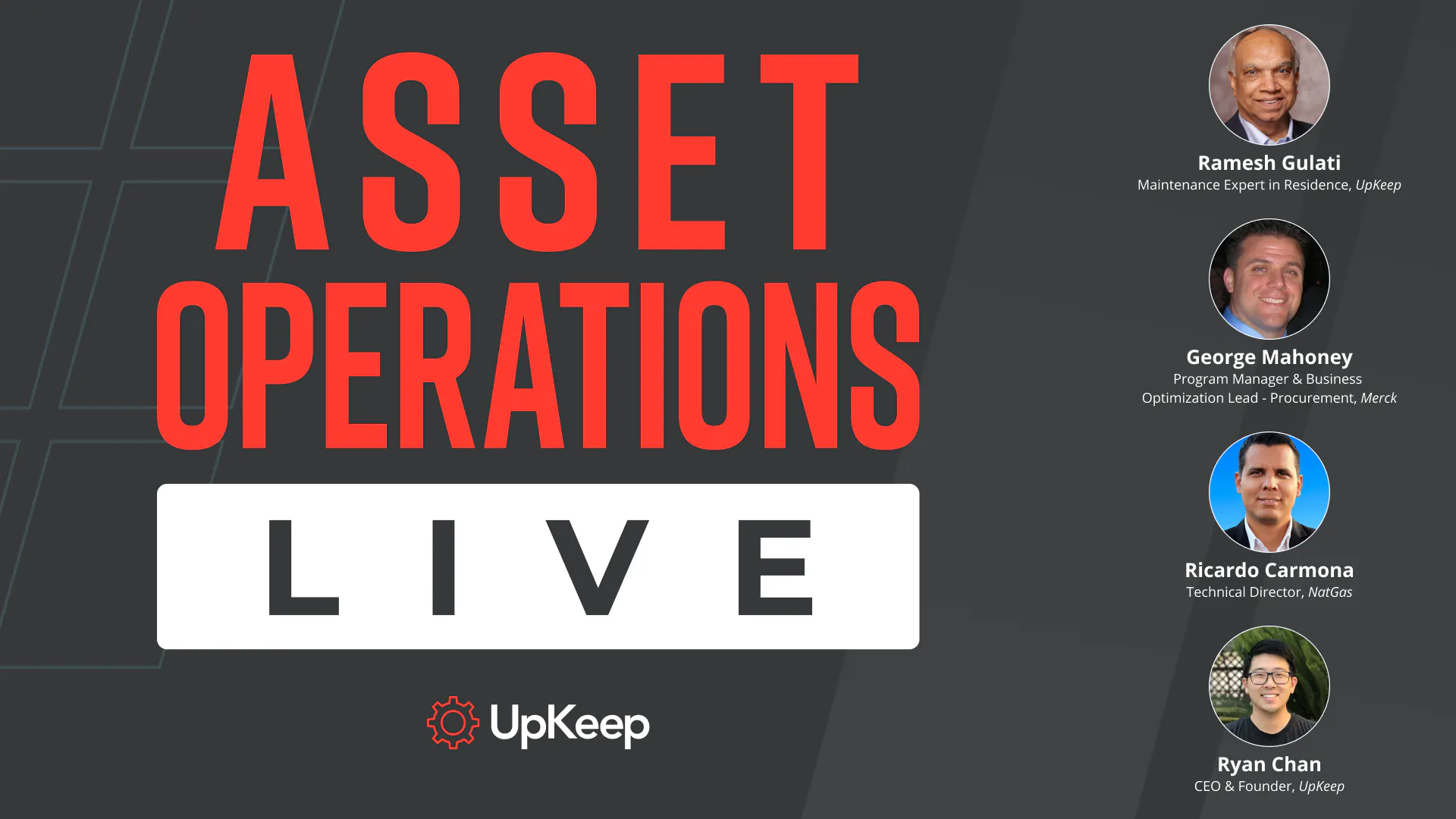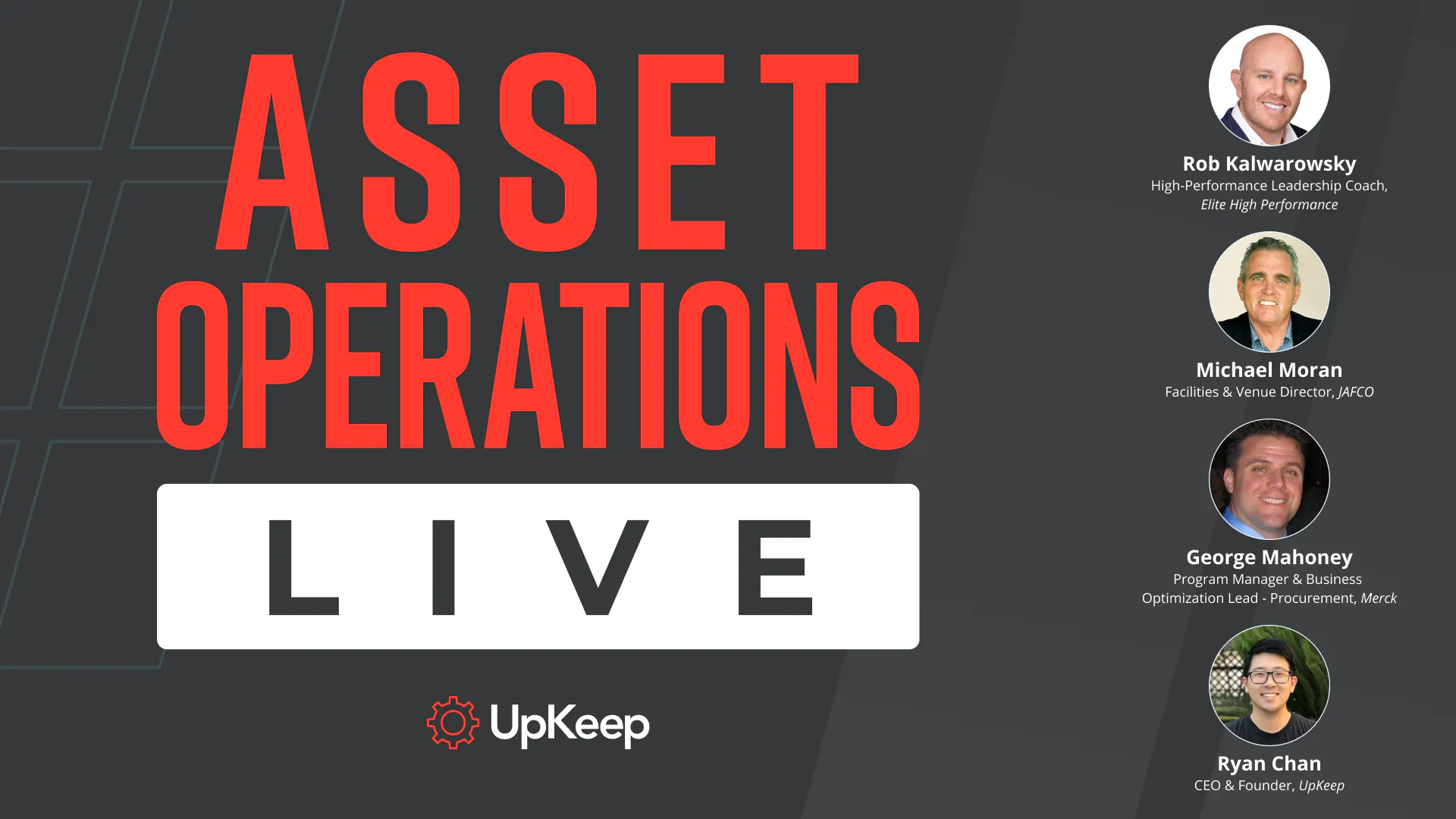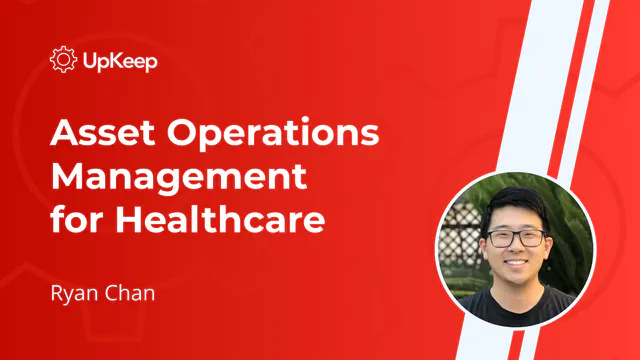Webinar
8 Pillars of Asset Operations Management - Mastering Efficiency and Productivity
Duration: 60
Published on: August 22, 2023
We are excited to invite you to our upcoming webinar on "The Eight Pillars of Asset Operations." In this webinar, we will delve into the core ideas that form the foundation of Asset Operations, providing you with a comprehensive understanding of this critical concept.
Asset Operations is not just about maintenance, reliability, and operations working together; it represents a paradigm shift in how organizations manage their assets and achieve their business goals. This webinar will explore the eight pillars that underpin Asset Operations and demonstrate how they empower companies to optimize asset performance, boost revenue, and minimize downtime.
Here's what you can expect to learn during the webinar:
-
Alignment for Success: Discover how to unite maintenance, reliability, and operations teams with a common goal, measured by tangible business outcomes rather than mere working hours.
-
Data Centralization: Explore the power of a single repository for data, breaking down information silos and connecting teams across departments and locations for more informed decision-making.
-
Focus on Impact: Shift your perspective from "what" teams are doing to "why" they are doing it, emphasizing the value they add to the business with a consolidated view of cost and revenue data.
-
The Next Generation of Maintenance: Learn about the four key ingredients of the future maintenance approach, including passive and active data collection, predictive models, and a workflow engine.
-
Full Life Cycle Visibility: Understand how Asset Operations provides a complete view across the entire life cycle of maintenance, asset management, and operations, enabling more informed business decisions.
-
Data-Driven Decision Making: Explore how comprehensive data insights empower teams to create reports, build dashboards, and make critical maintenance and asset management decisions.
-
Efficient Asset Management: Discover how Asset Operations fosters collaboration between departments to execute preventive maintenance programs, reduce downtime, and extend the useful life of assets.
-
Revenue-Driven Approach: Learn how Asset Operations bridges the gap between maintenance, reliability, and operations, elevating these functions from cost centers to revenue drivers.
UpKeep CEO, Ryan Chan, will share real-world examples and case studies to illustrate the transformative power of Asset Operations. Whether you're a maintenance manager, operations leader, or an executive looking to optimize asset performance, this webinar is a must-attend event for anyone interested in achieving operational excellence and driving revenue growth.
Register now to save your spot and take a significant step towards transforming your organization's asset management approach.
Explore More Events

Event
Asset Operations Live: How to Bring Maintenance, Reliability, and Operations Together to Be Revenue Drivers, Not Cost Centers
Join us for a deep dive into some of Asset Operations Management’s core fundamentals. This webinar focuses on uniting Maintenance, Operations, and Reliability teams to be revenue drivers, not cost centers.

Event
Asset Operations Live: The Benefits of Measuring Teams Based on Why They Do Something Rather Than What They Do
Join us for a deep dive into some of Asset Operations Management’s core fundamentals. This webinar focuses on continuous improvement as an abundanct life cycle and how to measure teams based on why they do something rather than what they do.

Event
Asset Operations Management for Healthcare
Join UpKeep CEO and Founder Ryan Chan to gain a deeper understanding of the unique challenges faced by Healthcare operations and facilities management teams.



![[Review Badge] Gartner Peer Insights (Dark)](https://www.datocms-assets.com/38028/1673900494-gartner-logo-dark.png?auto=compress&fm=webp&w=336)
